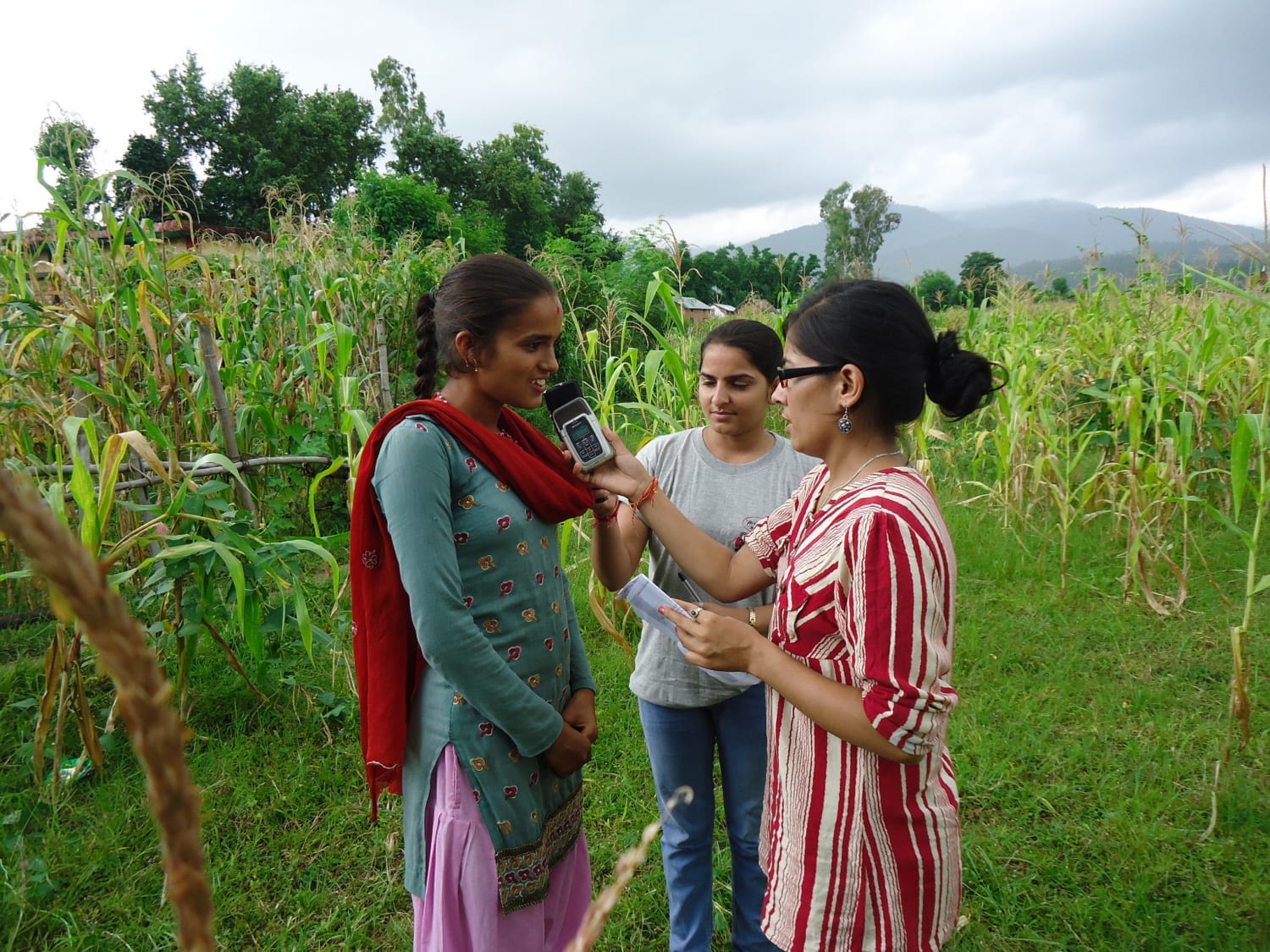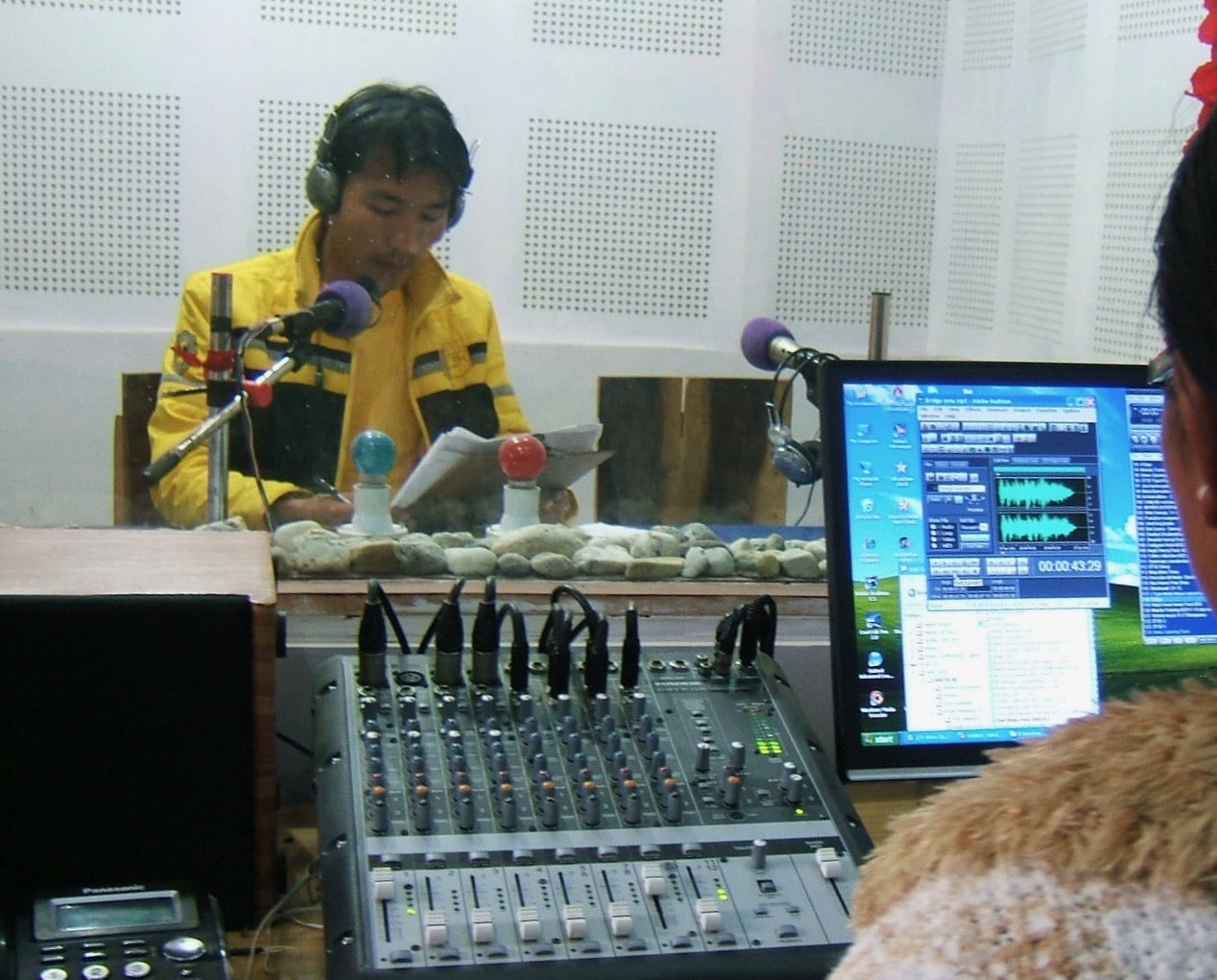

Spreading knowledge to stop the spread of HIV
“HIV infected people are treated badly, like people with leprosy were once treated.”
A Project of —
Chatting With My Best Friend

“Many people in our country don’t even know what AIDS is. They’ve never even heard of it. So how can we expect them to know about the safety measures?” – Listener, HIV and Us
While AIDS education and treatment have made great gains in the last decades, many parts of the world still struggle with ignorance, stigma, and lack of access to resources surrounding HIV/AIDS.
In Nepal, deep-rooted superstition is one of the main reasons for discrimination against people with HIV/AIDS. Many are fired from their jobs, and EAI listeners mentioned that people who have been trafficked and are HIV-infected do not come back to the villages for fear of how they will be treated.
Unfortunately, even those charged with educating youth on the issue can impede progress. “When I was studying in the 9th grade,” one listener explained, “there was a girl from our village who was being treated for HIV/AIDS in a nearby hospital. We went to see her, and then when we went to school, we were shocked to hear our health teacher mocking us because we had gone to see her. Some time back, he had taught us that we should not discriminate against people with HIV/AIDS.”
Another young person told EAI, “When people found out that my mother was infected, they even barred her from going to the public tap to get water. Nobody played with me or my brothers and sisters. Everybody said that we were a family of sick people. I tried hard to explain things, but no one believed me. I talked to the principal of our school and even he did not show much interest. We were made the outcasts of the village.”
Beyond creating an environment in which everyone is treated with respect, removing the HIV stigma is a part of stopping the disease itself. As one young listener said, “Because of the fear of discrimination, many people still hide their status, thus increasing the chances of infecting their partners and even their children.”
 Chatting With My Best Friend (Sathi Sanga Manka Kura) is an award-winning, popular Nepalese radio program that brings much-needed information to youth through friendly, conversational episodes focused on the real problems youth in Nepal face. To address the lack of information and stigma surrounding HIV and AIDs in Nepal, Equal Access International added a segment called “HIV and Us” encouraging listeners to send in their views on how they thought they were directly or indirectly connected to the HIV/AIDS issue.
Chatting With My Best Friend (Sathi Sanga Manka Kura) is an award-winning, popular Nepalese radio program that brings much-needed information to youth through friendly, conversational episodes focused on the real problems youth in Nepal face. To address the lack of information and stigma surrounding HIV and AIDs in Nepal, Equal Access International added a segment called “HIV and Us” encouraging listeners to send in their views on how they thought they were directly or indirectly connected to the HIV/AIDS issue.
Listeners came to understand the causes and preventative measures surrounding HIV and AIDs and shared their stories with us. “The program has made me aware so that I can remain safe from risky behaviors. It has also taught me to maintain a positive attitude toward infected people, and I’ve learned about the care and support they need.”
Chatting With My Best Friend inspired some listeners to form listening groups, where they could talk about the radio show and its message with their communities. Others mentioned practicing safe sex after what they’ve learned from the show, and sharing what they’d learned with others.
Some listeners started small. “Though it is difficult to completely eradicate it in a short time, we should at least begin, so that we can at least make a difference in someone’s life.”
EAI also heard from listeners who were HIV positive. “It has been the biggest turning point of my life,” one listener said of his diagnosis. “It has compelled me to change from a happy-go-lucky person to a sad and serious person.” Yet he also said that since being diagnosed, “I have transformed from a selfish person who just thought about himself to a social worker and a writer.”

“I thought it would be better to do something other than die. So I am working as the editor-in-chief of Sunaulo Bihan (New Dawn) monthly magazine. I also work in creating awareness.”
EAI makes an impact even in the most remote areas, where newspapers do not reach, and many are illiterate. By inspiring listeners to continue to spread the message of tolerance and understanding through word of mouth, the power of information is multiplied and becomes part of local consciousness. Myths and superstitions are replaced by education, in hopes that HIV infection may be reduced, and those who suffer may receive acceptance from their neighbors and communities.